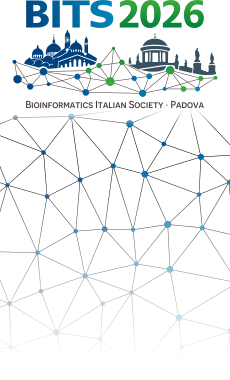We encourage applications from talented scientists, who are interested in gaining experience in a multidisciplinary and dynamic research environment that integrates expertise in computational and advanced molecular biology in one extended lab within the University of Modena and Reggio Emilia (Bicciato Lab) and the University of Padova (Piccolo Lab). The successful candidate will work on the integrative analysis of single cell genomics data to dissect gene regulatory networks and identify novel transcriptional determinants of tumor metastasis. This is an exciting opportunity to learn about the latest developments in the growing space of bioinformatics applied to single cell biology while contributing to new research in cancer.
Key Responsibilities include, but are not limited to:
- Develop and apply computational pipelines for the reconstruction of gene regulatory networks and the identification of master regulatory genes from single cell genomics data;
- Assist in the development, execution and optimization of advanced new computational biology methods for the integrative analysis of single cell genomics data;
- Support molecular and cell biologists to investigate the regulatory circuits of cancer and cancer metastases and to identify novel transcriptional determinants of metastasis;
- Perform troubleshooting experiments within limits of knowledge and training.
About the Bicciato lab and the Piccolo lab
Prof. Bicciato’s lab is an interdisciplinary group focused on the development and application of computational biology and bioinformatics methods to organize, analyze, compare, interpret, and visualize bulk and single cell genomics data. The lab is active in the development of methods, resources, and tools for the integrative analysis of multi -omics and phenotypic data; epigenomics and 3D genome; computational systems biology; and single cell genomics.
Prof. Piccolo’ lab is currently studying how cells sense their environment and use this information to build and maintain tissues with specific form, size and function. The lab is also investigating how disruption of these homeostatic mechanisms leads to tumor formation, progression, and metastasis. The research work is mainly centered on the biology of YAP/TAZ, two closely related transcriptional regulators playing essential functions in tissue regeneration and cancer.
The two labs work as one extended research group in integrating novel statistical and machine learning-based methods with experimental analysis in order to better understand how cell identity and fate drive biological processes and behaviors within tissues.
Required Skills
- The ideal candidate will have a PhD degree in bioengineering, mathematical engineering, computer science, physics, mathematics, statistics, cell and molecular biology, biotechnology or any related field in the life sciences with strong expertise in computational biology and bioinformatics;
- Proficiency in scripting environments for statistics and data analysis (R/Bioconductor, Matlab) and in at least one scripting or programming language (PERL, Python or C/C++).
Additional desired skills
- Expertise in the integrative analysis and interpretation of next-generation sequencing data (e.g., bulk and single cell RNA-seq, CHIP-seq, ATAC-seq, etc.);
- Expertise in statistical methods and algorithms development in the context of biological systems;
- 1-2 years of lab experience is preferred but not required;
- Preference will be given to candidates with immediate availability.
Postdoctoral associate within the AIRC 5x1000 project "Metastasis as mechanodisease"
Location
Modena (IT)
Referent
Silvio Bicciato
Deadline for application
31/07/2021
Contact




